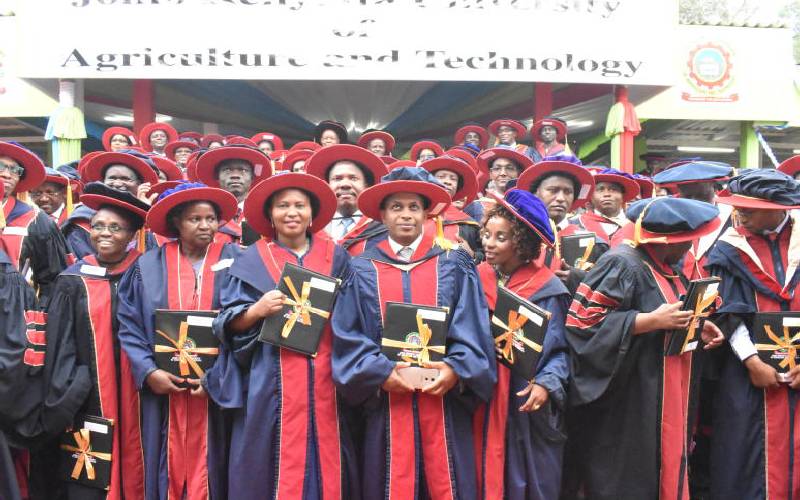×
The Standard e-Paper
Fearless, Trusted News

Anyone with a keen eye can discern that this country is yet to reap fully from its investment in universities. [Standard]
The recent conferment of over 118 PhD degrees by Jomo Kenyatta University of Agriculture and Technology (JKUAT) has elicited interesting public reactions.